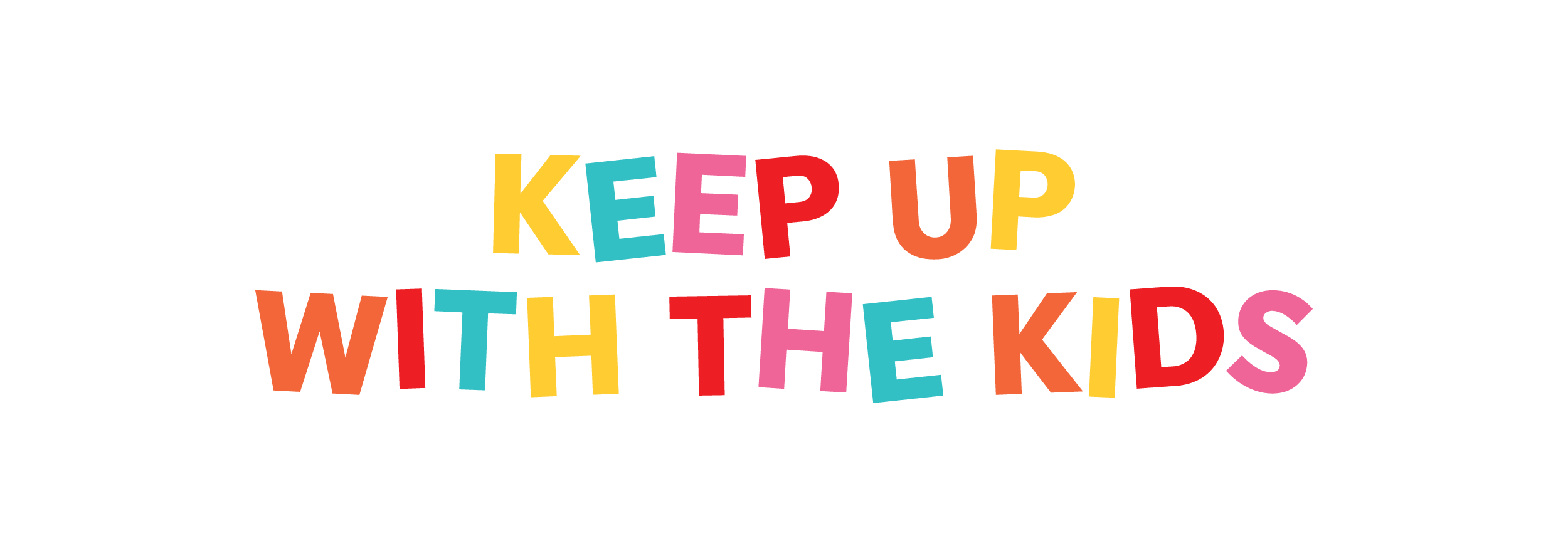Keep Up Weekly: Hope and uncertainty
Some heavy topics, a bit of hope, and plenty of real-life parenting moments.

Mixed feelings from me this week. On one hand, I’m feeling inspired — there are so many people out there working tirelessly to create positive change. The more I explore education and the people on a mission to improve it, the more I see just how many incredible, generous individuals are committed to making the world a better place for our kids. For example, I just learned about the New Zealand Association for the Teaching of English, one of just many subject-specific associations. I also came across Immerse, which helps create trauma-responsive schools, and The Great New Zealand Handwriting Challenge, an initiative tackling low handwriting pass rates. There’s so much good stuff happening!
However, there’s also no ignoring the weight of what’s unfolding globally and locally. The conversations happening, both here in New Zealand and abroad, raise serious questions around where we’re headed.
I started this project as a way for me to better understand the complexities shaping our children’s future and the world they’ll inherit. But unpacking this can be confronting.
This week, I’m sharing some heavier news stories. Knowing what’s happening helps me turn anxiety into action — whether it’s hugging my kids a little tighter, supporting causes I believe in, or building this community. But it can be, well, a lot, so I completely understand if you need to skip certain stories. I’ve organised the links into sections, so you can jump straight to the stories that interest you and skip those that might feel like a bit too much at the moment.
NZ NEWS
Primary teachers to get fast-tracked residency (RNZ)
Starting with some good news! The NZ government is streamlining the residency process for overseas teachers. Starting late next month, primary teachers with a job offer from an accredited employer can apply for residency immediately, rather than waiting two years. This will hopefully help with the teacher shortage. 🤞
Study finds that trainee teachers, midwives, nurses, and social workers are struggling financially
I’ve often toyed with the idea of becoming a teacher (and even at one point, a midwife!), but the cost of retraining — both in time and money — has always held me back. A new study from the University of Canterbury confirms what many already know: unpaid placements are putting a huge financial strain on those training for some of our most essential professions.
Teaching, midwifery, nursing, and social work — fields dominated by women — require years of study and intensive practicums, making it really difficult to work on the side. The study found it takes graduates 8.6 to 12 years to earn as much as a minimum-wage worker over the same period.
Dr Leighton Watson, the study’s author, points to stark dropout rates: 40% of social work trainees and 37% of midwifery students don’t complete their studies — compared to just 2% for firefighters and police, who are paid while they train.
Why don’t we pay teachers, social workers, nurses, and midwives while they train? Just — why?!
National English teacher association withdraws from curriculum rewrite (School News)
I’m still wrapping my head around the current curriculum, let alone the curriculum rewrites, but I thought it was worth noting that things aren’t running super smoothly. The New Zealand Association for the Teaching of English (NZATE) has decided to “step back” from collaborating with the Ministry of Education on the revised English curriculum, citing concerns over shifting directives and the risk of being seen as endorsing the curriculum in its current form. NZATE President Pip Tinning told School News they’ll reconsider if the MoE shows “a real sense of collaboration and a real sense of consultation”.
THOUGHT-PROVOKING READS & PODCASTS
Relying on AI all the time has this surprising consequence (HuffPost)
A new study led by Microsoft and Carnegie Mellon University reveals that AI tools are reshaping the way we think critically and solve problems. Researchers surveyed 319 professionals across fields like computer science, maths, and design, all of whom use generative AI tools such as ChatGPT in their work. The findings revealed that those who trusted generative AI to complete tasks were more likely to report “less critical thinking effort”.
Not sharing this to fearmonger. I just think it’s useful to be aware. I know I have to stop myself from reaching for ChatGPT whenever I get stuck. When I use it too much, I joke to my husband that “I can literally feel myself getting dumber”.
Is the Prime Minister pleasing Trump or protecting Britain? (The News Agents)
I feel a bit vulnerable sharing this episode. I don’t know the hosts’ politics, I haven’t scrutinised their past episodes, and the topics they touch on are unsettling. But I am listening to this podcast at the moment, and I want to be transparent about what’s shaping my understanding of current global issues.
The episode opens with a sound bite from UK Prime Minister Keir Starmer: “As a young man, I vividly remember the Berlin Wall coming down. It felt as if we were casting off the shackles of history, a continent united by freedom and democracy. If you had told me then, that in my lifetime, we would see Russian tanks rolling into European cities again, I would not have believed you.”
Starmer made this statement in a Commons address, where he announced a rise in UK defense spending to 2.5% within two years, and 3% by the end of next parliament. Some of this increase will be funded by cutting the UK’s foreign aid budget. I don’t follow UK politics closely, but as a humble observer, I understand that this is a big deal, and this podcast helped me get more context into why this is happening and what it might mean for young people.
In the second half of this episode, the hosts interview the Labour MP Josh Simons, who shares his take on the implications of the UK’s budget increase and offers thoughts on military recruitment. But what stood out most to me were his extraordinary views on why young people aren’t having children. He implies that parents are putting too much pressure on themselves and that modern parents don’t need to spend nearly as much time with their kids as they think they do. While I’m still processing what he said — and my immediate, visceral response was ‘this guy, wtf?!’ — it was a fascinating glimpse into how someone with privilege and the power to shape policy views parenting.
Overall, listening to podcasts like The News Agents pushes me out of my comfort zone and forces me to confront issues I’d rather avoid. If you’d prefer to focus your energy on lighter topics this week, I’d recommend skipping this episode.
A PEEK INTO MY PARENTING LIFE
My first foray into school sports
My daughter is trying a few new sports this term, and we’re doing our best to help her explore different options so she can find her thing. It’s not cheap and the calendar coordination is tricky! But what really caught me off guard was how much parental involvement is needed for school sports to even happen. I’d assumed, completely naively, that the school somehow provided coaches. But it actually relies on parents volunteering to coach.
The whole experience has really opened my eyes to how much of a privilege it is for kids to participate in school sports, and how much it relies on parents who are able to give their time and resources — which, in itself, is a privilege. It really saddens me to think about how many kids miss out on these opportunities. The inequity of it all is concerning.
Does the youngest grow up faster?
My 4-year-old nearly broke my heart on the way to preschool this week. After we’d dropped his sister off at the school gate (she insists on walking to class by herself now), he casually said: “Hey mummy, can you please open the gate for me when we get to kindy, and then I’ll walk up by myself. I can do it by myself now. I’ll be fine.”
Insert holding-back-tears-emoji. I straight up told him: “No, mummy loves walking you into preschool, plus I need to sign you in!!” but I was so taken aback by his earnest desire to be just as independent as his big sister. I’d assumed I’d have just as long walking him to his classroom as I did with my daughter — so, roughly until year 3. But now I can see a world where she walks him to his class, instead of me. He’s so much less afraid of new things because he has her in it, guiding the way.
That’s a wrap for this week. A big one! I hope you’ve found something here that resonates. If you’re enjoying this newsletter, please consider sharing it with your friends and family and inviting them to subscribe — it helps me keep it going. Just direct them to www.keepupwiththekids.com and it’ll be easy for them to sign up.





